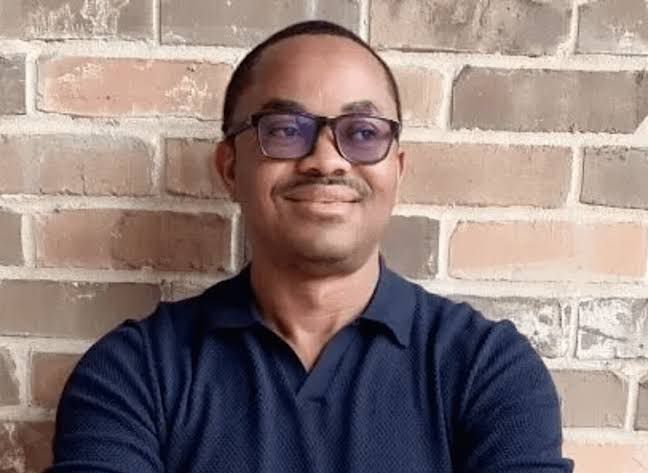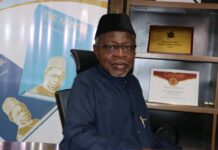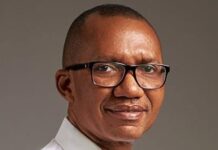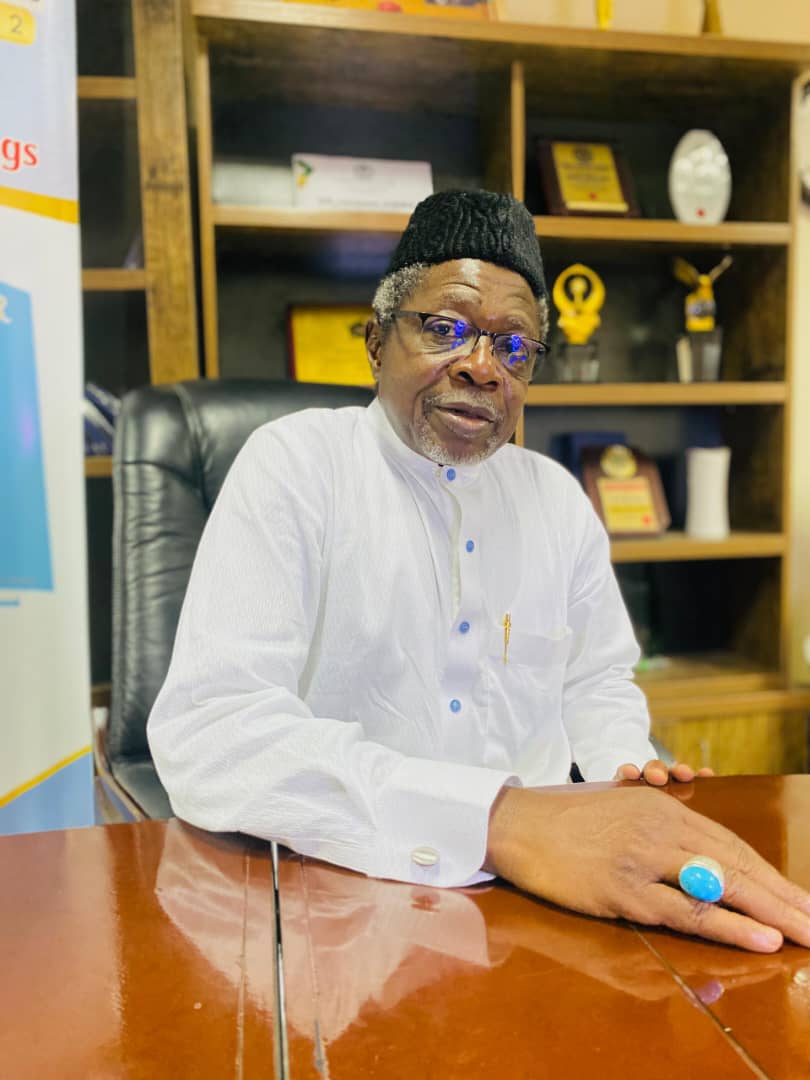Holy Words, Unholy Causes: How nationalism warps the message of Christ, by Osmund Agbo
Story by Jessica Mbamah
The first time I watched the video clip of Charlie Kirk’s murder, I knew I had made a huge mistake. The assassin’s bullet was brutal and merciless, an image now lodged in my mind like a splinter. I wailed for Charlie and his young family. I prayed for a world where my own children might live their lives in peace.
And yet the irony was impossible to miss: Charlie was not killed by a Black gangbanger or an Islamist terrorist but by a bullet fired by someone from the very group he spent his short thirty-one years of life defending. Even in a nation numbed by daily gun violence and endless debates about the Second Amendment, his killing jolted the public conscience.
Charlie’s views on guns were crystal clear. He saw the right to bear arms as a non-negotiable, God-given right. At 18 he founded Turning Point USA. By 2018 he was on the Rubin Report arguing that politics should remain secular and that government should not impose a Christian version of morality. Yet, over time, he transformed from a secular activist into a Christian nationalist icon, the face of a movement preaching the necessity of a white Christian takeover of government.
On podcasts and college campuses he sparred with students, building a massive following. In one of his last interviews, he said he hoped to be remembered primarily for his Christian beliefs. Like Donald Trump, he was a polarizing figure in life and death. His Christian supporters mourned him as a martyr. On the other hand, many Black Americans were both horrified at the manner of his death and appalled by his speeches portraying their entire race as subalterns, dependent on DEI and affirmative action for survival, undeserving of freedom or self-determination.
READ ALSO: Grace, Grit and Billions: Reflections on Otedola’s memoir, by Osmund Agbo
Christian nationalism had become Kirk’s identity. He promoted the “Great Replacement” theory, the belief in a conspiracy led by Jews to replace the political power and culture of white people in the West, an idea embedded in a web of xenophobic myths. He co-founded the “Professor Watchlist” to expose college professors who “discriminated” against conservative students. Many of those named, disproportionately Black, soon received hate mail and threats, living in fear for their safety.
But what does it even mean to be a Christian nationalist? There is something profoundly contradictory about claiming both identities. Christianity and nationalism are not just different; they are opposed. Christ preached a radical oneness of all God’s people, dissolving tribal, racial, and social boundaries in a vision of universal brotherhood.
Nationalism thrives on drawing lines, separating humans by race and color, proclaiming a God-ordained hierarchy, insisting on the superiority of one group over another. Where Christ sought to reconcile, nationalism seeks to divide.
Yet some of the world’s most ardent nationalists loudly profess Christianity.
READ ALSO: When home is the mouth of a shark, by Osmund Agbo
The Grand Wizard of the Ku Klux Klan invokes Jesus while spewing hate, draping himself in biblical language to defend racism. He cherry-picks convenient values such as opposition to abortion, to claim the moral high ground. He will proclaim the life of an unborn child precious even as he feels no dissonance about lynching a grown Black man.
This selective morality allows him to appear “pro-life” while simultaneously upholding apartheid and racial terror. The contradiction is staggering. Many Nigerian Christians reflecting on Charlie Kirk’s legacy struggle to reconcile how someone so steeped in “faith,” “family values,” and “biblical principles” could also embody bigotry. Convinced that critics simply oppose his Christian beliefs, they dismiss accusations against him as mere fabrications.
I recently encountered a biting comment circulating on social media that totally captured this dynamic:
“The average Nigerian Christian is an interesting species. You could say, ‘Okoro, you’re a fool in Jesus’ name,’ and he’d reply, ‘Amen. Thank you sir.’”
It is harsh but not far-fetched. Religion, once wielded as a weapon of conquest, remains the sharpest blade in the arsenal of control.
READ ALSO: The tyranny of imagination, by Osmund Agbo
Missionaries arrived in Africa alongside soldiers and traders, preaching humility, obedience, and otherworldly rewards while their compatriots plundered the land. Africans were told to turn the other cheek even as whips cracked their backs; to store up treasures in heaven while colonizers carted away treasures from African soil.
This conditioning persists. Today, faith has become a shield against accountability and a balm for injustices that should provoke outrage. Career criminals clutch Bibles or Qur’ans to escape justice, invoking Jesus or Prophet Mohammed as shields. Crowds gather not to condemn but to defend them. Their sins are explained away with alchemical logic peppered with scripture, and loyal followers volunteer to defend them, some even ready to lay down their lives.
The manipulation is not uniquely Nigerian. During apartheid South Africa, the Dutch Reformed Church offered theological cover for racial segregation. In Rwanda, church leaders played ignoble roles during the 1994 genocide. In America, slaveholders used Christianity to argue that bondage was divinely ordained. After Sunday services, some congregants joined lynch mobs. Religion has long been both cloak and cudgel.
Meanwhile, colonizers never abandoned their core interests: power, wealth, and dominance. They fought and continue to fight for their people, their land, and their survival. Faith, when convenient, is secondary to survival. Africans, however, adopted foreign faiths wholesale, often abandoning their own cultures, identities, and survival instincts.
READ ALSO: The myth of the self-made man, by Osmund Agbo
This is the sad cycle of African history: naivety packaged as piety, gullibility dressed up as faith, and misplaced loyalty disguised as righteousness. Until we place our survival, identity, and collective progress above dogma and borrowed ideologies, we will keep repeating the same mistakes.
The more I study history and confront modern realities, the clearer it becomes why colonizers so easily dominated our ancestors. What unfolded centuries ago was not just the conquest of territory but the conquest of the African mind. The residues of that conquest remain stubbornly with us today.
Consider those earliest encounters on the West African coast. The Portuguese, Dutch, and later the British and French did not arrive with overwhelming numbers. They arrived with a psychological edge. Guns, beads, mirrors, and rum were exchanged for ivory, gold, and most tragically, human beings. Africans marveled at the novelty of foreign trinkets while their land, wealth, and even kin slipped away.
The transatlantic slave trade endured for centuries not by brute force alone but through the collaboration of African elites dazzled by foreign goods, titles, or the illusion of friendship. Local kings and chiefs handed over captives, sometimes even their own people, for trinkets whose value evaporated the moment they left the coast. The pattern trading the profound for the superficial, was set early.
By distorting Christianity into a tribal badge rather than a universal calling, nationalists sanctify prejudice. They turn the cross from a bridge into a boundary marker. Unless Christians themselves confront this contradiction, refusing to let Christ’s name be invoked to justify injustice, the Gospel’s radical vision of unity will remain obscured behind banners of division.
READ ALSO: The truth about truth, by Osmund Agbo
Someone once asked how far former slave owners are willing to go to prove that freed slaves and their descendants are underclass, unworthy of freedom and self-determination. For me, the more urgent question is how much longer it will take before Africa finally wakes up and sees clearly.
The unfinished work of Africa’s liberation is not merely political or economic; it is psychological. We need not abandon faith, but we must unmask its misuse. We must recognize when religion serves liberation and when it serves control. We must reclaim the ability to question, to value substance over spectacle, and to prioritize collective progress over empty promises of heavenly reward.
Only then can Christianity reclaim its true radicalism, its vision of a humanity without borders and only then can Africa complete the work of liberation that began generations ago
Osmund Agbo is a medical doctor and author. His works include, Black Grit, White Knuckles: The Philosophy of Black Renaissance and a fiction work titled The Velvet Court: Courtesan Chronicles. His latest works, Pray, Let the Shaman Die and Ma’am, I Do Not Come to You for Love, have just been released. He can be reached@ eagleosmund@yahoo.com
Follow the Neptune Prime channel on WhatsApp:
Do you have breaking news, interview request, opinion, suggestion, or want your event covered? Email us at neptuneprime2233@gmail.com





